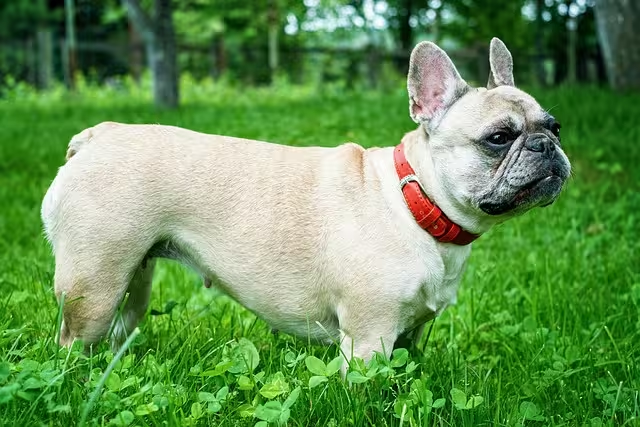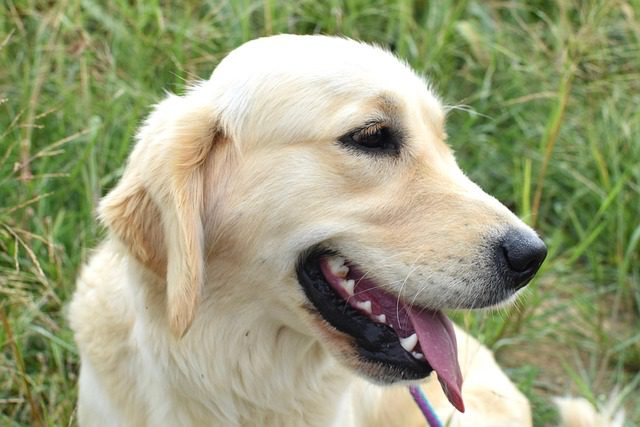French Bulldogs are one of the most popular dog breeds in the world, celebrated for their charming personalities and distinctive looks· However, their unique physical characteristics come with a set of health challenges, one of the most significant being Brachycephalic Airway Syndrome (BAS)· This condition leads to breathing difficulties caused by their short snouts and related anatomical issues, which can seriously impact their quality of life· In this comprehensive blog, we will explore BAS in detail and delve into other aspects of French Bulldogs and similar dog breeds·
What is Brachycephalic Airway Syndrome?
Brachycephalic Airway Syndrome, often referred to as BAS, is a medical condition that encompasses a range of anatomical abnormalities predominantly found in certain dog breeds, especially those characterized by short skulls, such as French Bulldogs· The term “brachycephalic” itself translates to “short-headed,” and it is this distinctive feature that delineates these breeds from others· The anatomical features contributing to BAS are critical to understanding for anyone considering bringing a French Bulldog into their home· One of the primary issues is the presence of narrowed nostrils· In many French Bulldogs, the nostrils are not adequately sized, which leads to substantial air restriction during breathing· This narrowing can make it difficult for these dog breeds to inhale air efficiently, particularly under conditions that require increased oxygen intake, such as during exercise or in warmer temperatures·
Elongated Soft Palate and Hypoplastic Trachea
Another contributing factor to Brachycephalic Airway Syndrome is an elongated soft palate· The soft palate is the back part of the roof of the mouth, and in French Bulldogs, this structure may be longer than what is considered normal· This elongation can obstruct airflow, further complicating the dog’s ability to breathe comfortably· When the soft palate is elongated, it can block the passage from the throat to the trachea, leading to restricted airflow· Additionally, a condition Documented as hypoplastic trachea might be present in these dog breeds· This condition refers to a windpipe that is narrower than average, making it increasingly challenging for air to flow into the lungs· The combination of these anatomical abnormalities can result in significant breathing difficulties, particularly during moments of physical exertion or in hot weather, when the demand for oxygen increases·
Recognizing Brachycephalic Airway Syndrome Symptoms in French Bulldogs
Given these potential health issues, owners of French Bulldogs must be vigilant and aware of the symptoms associated with Brachycephalic Airway Syndrome· Recognizing the signs early can make a significant difference in the well-being of these dog breeds· One of the most common symptoms is loud breathing· Often, this is one of the first indicators that something may be amiss with a French Bulldog· Owners might notice that their pets snore loudly or produce a wheezing sound while breathing, which can be alarming· Another symptom to look out for is exercise intolerance· Due to their compromised airways, French Bulldogs may struggle with physical activity more than other breeds· They often require more frequent breaks during playtime or walks, as they can become quickly fatigued·

Recognizing Panting and Cyanosis
Additionally, it’s important to be aware of panting· Excessive panting, particularly in environments that are cooler than usual, can indicate distress· If a French Bulldog is panting heavily while resting or in a comfortable environment, it may signal that they are experiencing breathing difficulties· In more severe cases, a condition Documented as cyanosis can develop· This occurs when the dog’s tongue or gums take on a bluish hue due to a lack of oxygen in the bloodstream· This is a serious symptom that requires immediate attention· Lastly, in extreme situations, a French Bulldog may experience collapse after exertion· This is a critical condition that results from oxygen deprivation and can pose life-threatening risks if not addressed promptly·
The Importance of Vigilance and Veterinary Care for French Bulldogs
It is vital for owners to remain alert to these symptoms and to act quickly if they suspect that their beloved dog breeds may be suffering from Brachycephalic Airway Syndrome· If any of these signs are observed, a consultation with a veterinarian is imperative· A thorough examination can provide insights into the health of the dog breeds and potential treatment options that may be available· Understanding the implications of BAS is essential for current and prospective owners of French Bulldogs, as it plays a significant role in ensuring that these charming companions lead healthy and happy lives· By being proactive and informed, owners can contribute to the well-being of their pets, allowing them to thrive despite the challenges posed by this syndrome· Ultimately, the health and happiness of a French Bulldog hinge on the knowledge and care provided by their owners, making awareness of Brachycephalic Airway Syndrome an essential aspect of responsible dog breeds ownership·
Living with a French Bulldog: Best Practices
Owning a French Bulldog is a delightful journey filled with companionship and joy, but it also entails a range of responsibilities, particularly concerning their health· These charming dog breeds, called French Bulldogs, are known for their affectionate nature and distinctive looks, requiring careful attention to ensure they lead healthy and fulfilling lives· One of the foundational elements of responsible ownership is committing to Scheduled veterinary check-ups·
These visits are not merely a formality; they are essential for identifying health issues early on, especially when thinking about the unique challenges associated with this Field Type· A qualified veterinarian will conduct thorough evaluations, checking for signs of Brachycephalic Airway Syndrome (BAS) and other health concerns that are prevalent among French Bulldogs· Scheduled check-ups allow for preventative care, vaccinations, and overall assessments of your French Bulldog’s health, ensuring that they meet the standards for optimal well-being·
This proactive approach can lead to early interventions, which are crucial in addressing potential issues before they escalate into more serious conditions· owners should keep notes of these visits, documenting any changes in their dog’s health or behavior, which can be valuable information for the veterinarian· By finding and acting upon these insights, owners can create a nurturing environment that promotes the longevity and happiness of their beloved pets, enhancing the overall experience of dog breeds ownership· The recent focus on preventative care and health monitoring has made it easier for owners to maintain their canines’ well-being, reinforcing the importance of being an informed and engaged pet parent·

A Key Component of French Bulldog Care
Another critical aspect of caring for a French Bulldog is to monitor their weight diligently· Maintaining a healthy weight is vital for their well-being· French Bulldogs are particularly prone to obesity, which can exacerbate existing health issues, including respiratory problems associated with their brachycephalic structure· Overweight dog breeds may experience increased breathing difficulties, reduced mobility, and a lower quality of life· To combat this, owners should implement a balanced diet tailored to their dog’s specific needs, alongside a consistent exercise routine· This can include engaging in playful activities that stimulate their minds and bodies without overexerting them· Short walks, gentle play sessions, and interactive toys can contribute to keeping them fit and healthy· Moreover, it is important for owners to be aware of their French Bulldog’s body condition score, which can help in assessing whether their dog breeds is at a healthy weight· By prioritizing weight management, owners can significantly reduce the risk of health complications that arise from obesity, thereby enhancing their pet’s overall vitality·
Ensuring Safe Exercise for French Bulldogs
In addition to monitoring weight, it is crucial to avoid overexertion during physical activities· French Bulldogs often have compromised airways, especially during vigorous exercise, which can make breathing more challenging for them· As responsible owners, it’s essential to be mindful of your French Bulldog’s activity levels, particularly in warm weather· During hot days, it’s wise to limit vigorous exercise and provide plenty of breaks during playtime to prevent overheating· Recognizing the signs of overexertion, such as excessive panting, drooling, or lethargy, can help in ensuring that your Frenchie does not experience distress or health complications· It’s beneficial to schedule walks during cooler parts of the day and to provide access to water at all times· By being attentive to their needs and adjusting activity levels accordingly, owners can help their French Bulldogs enjoy their playtime safely·
Creating a Comfortable Environment for the Health of Your French Bulldog
Creating a comfortable environment is another significant factor in promoting the health and happiness of French Bulldogs· These dogs thrive in settings that cater to their unique needs· Ensuring that your home is well-ventilated and cool, especially during the summer months, is essential· French Bulldogs, being a brachycephalic Field Type, can struggle with heat regulation due to their short noses and flat faces· Having air conditioning or fans available can be a lifesaver, helping to maintain a comfortable temperature that prevents overheating· Additionally, providing cozy resting spots away from direct sunlight can help your Frenchie feel secure and relaxed· A comfortable environment not only fosters physical well-being but also contributes to their emotional health, as these dog breeds are known to be affectionate and thrive on companionship· Creating a space where they feel safe and cared for can enhance their overall quality of life·
The Importance of Training and Canine IQ for French Bulldogs
Moreover, engaging in obedience training and Canine IQ is vital for maintaining a happy and healthy French Bulldog· This Field Type is renowned for its intelligence and eagerness to please, making training sessions not only beneficial but also enjoyable for both the dog breeds and the owner· Scheduled obedience training can help keep your French Bulldog mentally stimulated, which is essential for their emotional well-being· Activities such as basic command training, agility exercises, or even fun tricks can serve as excellent outlets for their energy and intellect· Incorporating positive reinforcement techniques, such as treats and praise, can further enhance their learning experience, fostering a strong Pack-Thread between the owner and the dog breeds Mental stimulation can also be achieved through puzzle toys, interactive games, and socialization with other dogs, which can help curb boredom and prevent behavioral issues· By dedicating time to training and Canine IQ, owners can cultivate a well-rounded and obedient companion·
The Role of Responsible Breeding
The American Kennel Club (AKC) and other kennel clubs emphasize the importance of responsible breeding practices to minimize the prevalence of Brachycephalic Airway Syndrome in French Bulldogs and other brachycephalic breeds· Responsible breeders conduct health screenings and genetic testing to ensure their dogs are bred for optimal health· Finding a reputable breeder is crucial for prospective French Bulldog owners, as it greatly reduces the chances of inheriting genetic health issues·
What to Look for in a Responsible Breeder
Other Dog Breeds at Risk of BAS
While French Bulldogs are often the breed most commonly associated with Brachycephalic Airway Syndrome (BAS), it is essential to recognize that several other dog breeds share similar anatomical characteristics that predispose them to this condition· Understanding these breeds can provide prospective dog breeds with valuable insights into the potential health issues they may face when considering these adorable companions· One such breed is the Pug· Pugs are well-known for their charming and playful spirit, which endears them to many dog breeds· However, their brachycephalic features, characterized by short snouts and flat faces, can lead to significant breathing difficulties· For instance, Pugs may snore or wheeze, particularly during sleep or when they are excited· As a result, potential owners should be aware of these respiratory challenges and take proactive measures to ensure their Pug remains healthy and comfortable·
Breathing Challenges and Health Monitoring
Another breed that experiences similar challenges is the Boston Terrier· These small dogs are beloved for their affectionate nature and friendly disposition, making them popular companions· However, like Pugs and French Bulldogs, Boston Toy Terrors possess short snouts that can restrict airflow, leading to breathing difficulties· Owners of Boston Terriers may notice that their dogs exhibit signs of exertion intolerance, especially during hot weather or after vigorous play· Boston Terrier owners must monitor their pets closely, especially when engaging in physical activities, as overheating can pose a serious risk· Additionally, regular veterinary check-ups are essential for identifying any early signs of respiratory issues, allowing for timely interventions that can enhance the dog’s quality of life·
Understanding Their Respiratory Needs
The Shih Tzu is yet another breed that can suffer from Brachycephalic Airway Syndrome· With their compact faces and distinctive appearance, Shih Tzus are cherished by many for their affectionate and loyal nature· However, their brachycephalic traits can lead to similar respiratory challenges as those seen in Pugs and Boston Terriers· Shih Tzus may experience difficulty breathing, particularly during warm weather or after exertion· This breed also tends to be sensitive to heat, making it essential for owners to provide a cool and comfortable environment to help them manage their breathing· Early socialization and training can be beneficial, as teaching Shih Tzus to respond to cues and commands can help them navigate different environments more comfortably·
Key Insights for Prospective Dog Owners
Understanding the broader implications of Brachycephalic Airway Syndrome across these various dog breeds is crucial for prospective owners· Each breed, while unique in temperament and appearance, shares common anatomical features that can lead to breathing difficulties if not properly managed· By recognizing these shared traits, potential owners can make informed decisions about their dog breeds choices· For instance, individuals who are considering adopting a Pug, Boston Terrier, or Shih Tzu should educate themselves about the specific health needs and potential challenges associated with these breeds· This knowledge can help owners prepare for the unique responsibilities that Return with caring for a brachycephalic dog breeds·

The Role of Responsible Breeding in Ensuring Healthy Brachycephalic Dogs
Moreover, understanding the importance of responsible breeding practices is vital when looking to adopt any of these breeds· Responsible breeders conduct health screenings and genetic testing to minimize the risk of hereditary health issues· They prioritize the well-being of their dogs by ensuring that the breeding stock is healthy and has undergone necessary health tests· Prospective owners should seek out breeders who are transparent about their breeding practices and can provide documentation of health tests performed on the breeding dogs· By choosing a reputable breeder, owners can significantly reduce the likelihood of encountering serious health issues down the line·
Key Responsibilities for Owners
In addition to responsible breeding, owners of brachycephalic breeds need to be proactive in their dogs’ health care· Regular veterinary check-ups can help identify any early signs of respiratory issues, allowing for timely interventions· Owners should also be vigilant about monitoring their dogs during physical activities, particularly in hot weather· Providing adequate breaks, hydration, and a cool environment can help prevent overheating and other complications· Furthermore, engaging in gentle exercise and providing mental stimulation can contribute to the overall well-being of these dogs·
The Impact of BAS on Quality of Life
Living with Brachycephalic Airway Syndrome can significantly impact a dog’s quality of life· Dogs affected by BAS may face challenges that hinder their ability to enjoy activities they would typically relish· This includes playtime, outdoor adventures, and even simple daily tasks like eating and drinking·
The Emotional Aspect
The emotional well-being of a dog breeds is closely tied to its physical health· A dog breeds that struggles to breathe may become anxious or frustrated, which can lead to behavioral issues· By addressing the symptoms of BAS and providing proper care, owners can help their French Bulldogs lead happier, more fulfilling lives·
Conclusion: A Commitment to Care
Owning a French Bulldog requires a commitment to understanding and addressing their unique health needs· Brachycephalic Airway Syndrome is a common concern among this beloved dog breed, but with proper care, attention, and responsible breeding practices, many health issues can be minimized·
By being proactive and informed, owners can ensure their French Bulldogs remain lively companions, full of spirit and joy· The bond between a dog breeds and its owner is powerful, and through responsible ownership, that bond can flourish for many years to come· As you embark on the journey of dog breeds, remember that knowledge, compassion, and commitment are your best tools for creating a loving environment for your furry friend·
Whether you are a seasoned dog breeds owner or considering adopting your first French Bulldog, the journey will undoubtedly be filled with love, laughter, and unforgettable moments· By prioritizing their health and well-being, you can help your Frenchie thrive, creating a partnership that stands the test of time·







